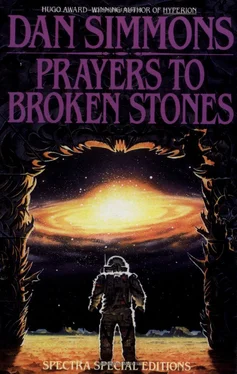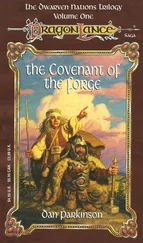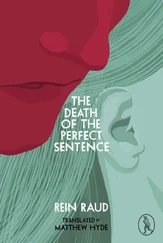Dan Simmons - The Death of the Centaur
Здесь есть возможность читать онлайн «Dan Simmons - The Death of the Centaur» весь текст электронной книги совершенно бесплатно (целиком полную версию без сокращений). В некоторых случаях можно слушать аудио, скачать через торрент в формате fb2 и присутствует краткое содержание. Год выпуска: 1992, Жанр: Фантастика и фэнтези, на английском языке. Описание произведения, (предисловие) а так же отзывы посетителей доступны на портале библиотеки ЛибКат.
- Название:The Death of the Centaur
- Автор:
- Жанр:
- Год:1992
- ISBN:нет данных
- Рейтинг книги:5 / 5. Голосов: 1
-
Избранное:Добавить в избранное
- Отзывы:
-
Ваша оценка:
- 100
- 1
- 2
- 3
- 4
- 5
The Death of the Centaur: краткое содержание, описание и аннотация
Предлагаем к чтению аннотацию, описание, краткое содержание или предисловие (зависит от того, что написал сам автор книги «The Death of the Centaur»). Если вы не нашли необходимую информацию о книге — напишите в комментариях, мы постараемся отыскать её.
The Death of the Centaur — читать онлайн бесплатно полную книгу (весь текст) целиком
Ниже представлен текст книги, разбитый по страницам. Система сохранения места последней прочитанной страницы, позволяет с удобством читать онлайн бесплатно книгу «The Death of the Centaur», без необходимости каждый раз заново искать на чём Вы остановились. Поставьте закладку, и сможете в любой момент перейти на страницу, на которой закончили чтение.
Интервал:
Закладка:
Dan Simmons
The Death of the Centaur
Introduction
I was a teacher for eighteen years. Not a college professor… not even a high school English teacher… "just" an elementary teacher. Over the years I taught third grade, fourth grade, and sixth grade, spent a year as a "resource teacher," (sort of a lifeguard for kids in danger of going under because of learning problems) and ended my career in education by spending four years creating, coordinating, and teaching very advanced programs for "gifted and talented" (i.e., smart and able) students in a district with seven thousand elementary-aged children.
I mention all this as background to the next story.
Teaching is a profession which is not quite a profession. As recently as twenty-five years ago, teachers balanced their low pay with whatever satisfaction they could find in the job and there is plenty for a good teacher and by enjoying a certain indefinable sense of status in the eyes of the community.
Some years ago when I was a sixth grade teacher, I stepped outside one winter evening to see the Colorado skies ablaze with a disturbing light. It was the aurora borealis, of course, in what may well be the most dramatic display I'll ever see from these latitudes.
As I stood watching this incredible light show, a young student of mine and her mother came down the street and asked what was going on. I explained about the aurora.
"Oh," said the mother. "I thought maybe it was the end of the world like it predicts in Revelation, but Jesse said you'd know if it was something else."
I think of that moment occasionally.
It used to be that teachers were if not exactly the sages of society at least respected as minor but necessary intellectual components in the community. Now, when parents go in to a parent/teacher conference, the odds are great that the parents are better educated than the teacher. Even if they're not, they almost certainly make significantly more money than the teacher.
Of course it's not just the low pay that is driving good people out of teaching; it's not even the combination of low pay, contempt from the community, contempt from school and district administrators who see master teachers as a liability (they would rather have beginning teachers whose tabulas are perfectly rasa and ready to be programmed with whatever new district fads the administration is pushing), and the fact that many children today are not pleasant to be around. Perhaps it's all this plus the reality that teaching is no longer a place for people with imagination. Creative people need not apply. Most don't.
The point of all this is that just at the time when we most desperately need quality teachers, just when our intellectual survival now demands men and women in the classroom who teach so well and make our children think so well that we'll have no choice but to pay that teacher the ultimate teacher's compliment condemnation to death by hemlock or crucifixion; just at the time now when families and all the other traditional institutions are abdicating their responsibilities in everything from teaching ethics to basic hygiene, abandoning the effort it takes to turn young savages into citizens; surrendering and handing these duties to schools … that happens to be the time when the schools lack the small but critical mass of brilliant, creative, and dedicated people who've always made the system work .
To compensate, teachers hang signs in their faculty lounges. The signs say things like "A teacher's influence touches eternity."
It may. It may. But take it from somebody who was in there pitching for eighteen years good teachers are invaluable, more precious than platinum or presidents, but a bad teacher's influence touches the same eternity.
The teacher and the boy climbed the steep arc of lawn that overlooked the southernmost curve of the Missouri River. Occasionally they glanced up at the stately brick mansion that held the high ground. Its tiers of tall windows and wide French doors reflected the broken patterns of bare branches against a gray sky. Both the boy and the young man knew the big house was most likely empty its owner spent only a few weeks a year in town but approaching so close afforded them the pleasurable tension of trespass as well as an outstanding view.
A hundred feet from the mansion they stopped climbing and sat down, backs against a tree which shielded them from the slight breeze and protected them from the casual notice of anyone in the house. The sun was very warm, a false spring warmth which would almost surely be driven off by at least one more snowstorm before returning in earnest. The wide expanse of lawn, dropping down to the railroad tracks and the river two hundred yards below, had the faint, green splotchiness of thawing earth. The air smelled like Saturday.
The teacher took up a short blade of grass, rolled it in his fingers, and began to chew on it thoughtfully. The boy pulled a piece, squinted at it for a long second, and did likewise.
"Mr. Kennan, d'you think the river's gonna rise again this year and flood everythin' like it done before?" asked the boy.
"I don't know, Terry," said the young man. He did not turn to look at the boy, but raised his face to the sun and closed his eyes.
The boy looked sideways at his teacher and noticed how the red hairs in the man's beard glinted in the sunlight. Terry put his head back against the rough bark of the old elm but was too animated to shut his eyes for more than a few seconds.
"Do you figure it'll flood Main if it does?"
"I doubt it, Terry. That kind of flood only comes along every few years."
Neither participant in the conversation found it strange that the teacher was commenting on events which he had never experienced first hand. Kennan had been in the small Missouri town just under seven months, having arrived on an incredibly hot Labor Day just before school began. By then the flood had been old news for four months. Terry Bester, although only ten years old, had seen three such floods in his life and he remembered the cursing and thumping in the morning darkness the previous April when the volunteer firemen had called his father down to work on the levee.
A train whistle came to them from the north, the Dopplered noise sounding delicate in the warm air. The teacher opened his eyes to await the coming of the eleven a.m. freight to St. Louis. Both counted the cars as the long train roared below them, diesel throbbing, whistle rising in pitch and then dropping as the last cars disappeared toward town around the bend in the track where they had just walked.
"Whew, good thing we wasn't down there," said Terry loudly.
"Weren't," said Mr. Kennan.
"Huh?" said Terry and looked at the man.
"We weren't down there," repeated the bearded young man with a hint of irritation in his voice.
"Yeah," said Terry and there was a silence. Mr. Kennan closed his eyes and rested his head against the tree trunk once again. Terry stood to throw imaginary stones at the mansion. Sensing his teacher's disapproval, he stopped the pantomine and stood facing the tree, resting his chin against the bark and squinting up at the high branches. Far overhead a squirrel leaped.
"Twenty-six," said Terry.
"What's that?"
"Cars on that train. I counted twenty-six."
"Mmmmm. I counted twenty-four."
"Yeah. Me too. That's what I meant to say. Twenty-four, I meant."
Kennan sat forward and rolled the blade of grass in his hands. His thoughts were elsewhere. Terry rode an invisible horse around in tight circles while making galloping sounds deep in his throat. He added the phlegmy noise of a rifle shot, grabbed at his chest, and tumbled off the horse. The boy rolled bonelessly down the hill and came to a contorted, grass-covered stop not three feet from his teacher.
Читать дальшеИнтервал:
Закладка:
Похожие книги на «The Death of the Centaur»
Представляем Вашему вниманию похожие книги на «The Death of the Centaur» списком для выбора. Мы отобрали схожую по названию и смыслу литературу в надежде предоставить читателям больше вариантов отыскать новые, интересные, ещё непрочитанные произведения.
Обсуждение, отзывы о книге «The Death of the Centaur» и просто собственные мнения читателей. Оставьте ваши комментарии, напишите, что Вы думаете о произведении, его смысле или главных героях. Укажите что конкретно понравилось, а что нет, и почему Вы так считаете.












